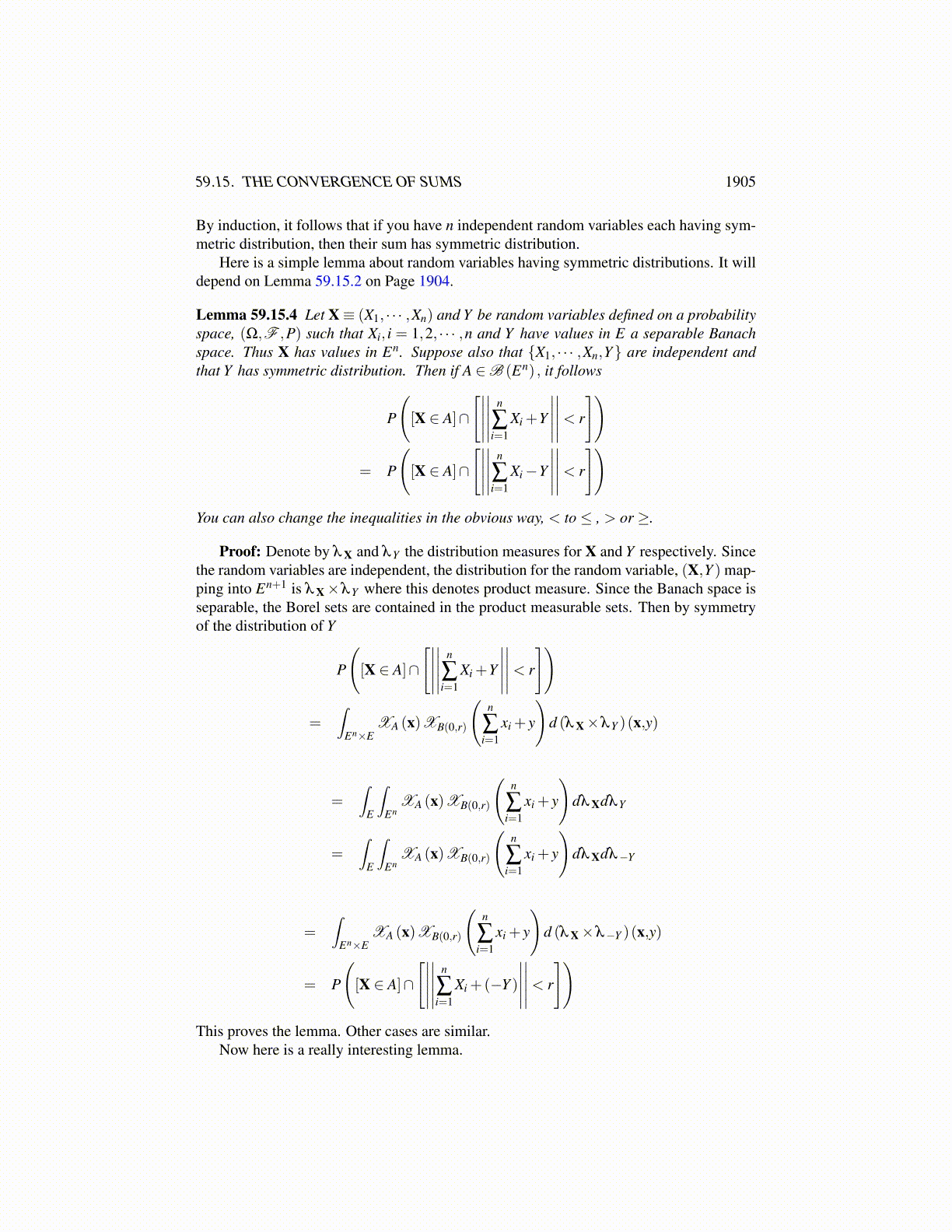
59.15. THE CONVERGENCE OF SUMS 1905
Therefore, if s is a simple function, s(x) = ∑nk=1 ckXAk (x) ,∫
Esd (µ ∗ν) =
n
∑k=1
ck
∫E
ν (Ak− x)dµ (x)
=∫
E
n
∑k=1
ckν (Ak− x)dµ (x)
=∫
E
n
∑k=1
ckXAk−x (y)dν (y)dµ (x)
=∫
E
∫E
s(x+ y)dν (y)dµ (x)
Approximating with simple functions it follows that whenever f is bounded and measurableor nonnegative and measurable,∫
Ef d (µ ∗ν) =
∫E
∫E
f (x+ y)dν (y)dµ (x) (59.14.25)
Therefore, letting Z = X +Y, and λ the distribution of Z, it follows from independence ofX and Y that for t∗ ∈ E ′,
φ λ (t∗)≡ E
(eit∗(Z)
)= E
(eit∗(X+Y )
)= E
(eit∗(X)
)E(
eit∗(Y ))
But also, it follows from 59.14.25
φ (µ∗ν) (t∗) =
∫E
eit∗(z)d (µ ∗ν)(z)
=∫
E
∫E
eit∗(x+y)dν (y)dµ (x)
=∫
E
∫E
eit∗(x)eit∗(y)dν (y)dµ (x)
=
(∫E
eit∗(y)dν (y))(∫
Eeit∗(x)dµ (x)
)= E
(eit∗(X)
)E(
eit∗(Y ))
Since φ λ (t∗) = φ (µ∗ν) (t
∗) , it follows λ = µ ∗ν .Note the last part of this argument shows the characteristic function of a convolution
equals the product of the characteristic functions. This proves the theorem.
59.15 The Convergence Of SumsIt turns out that when random variables have symmetric distributions, some remarkablethings can be said about infinite sums of these random variables. Conditions are givenhere that enable one to conclude the convergence of the sequence of partial sums from theconvergence of some subsequence of partial sums.
The following lemma is like an earlier result but is proved here for convenience.